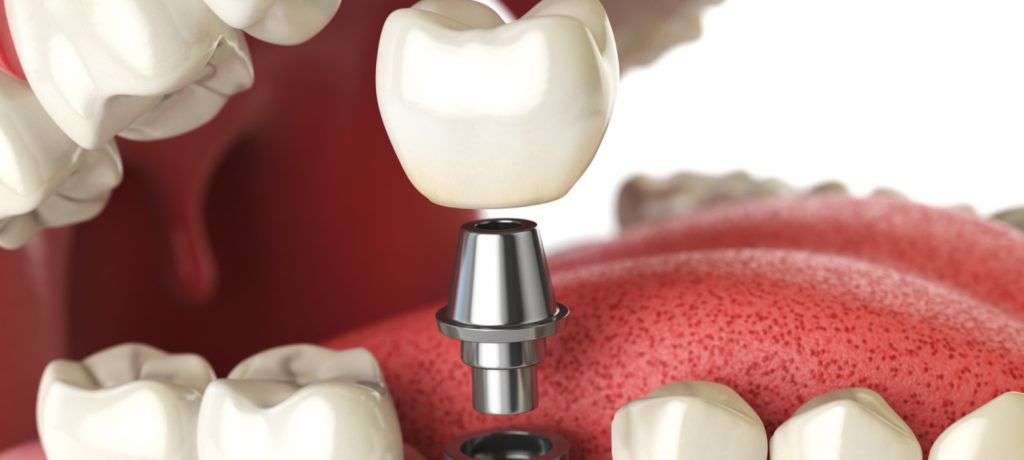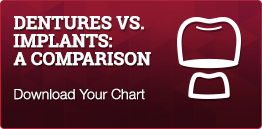Information Library
Start Reading

One of the biggest myths about aging is that tooth loss is inevitable as you get older. The reality is that diligent oral hygiene makes an enormous difference in healthy aging. Even so, tooth loss remains a common problem for many people. Older adults suffer higher rates of gum disease, dental decay, mouth infections, oral cancer, and tooth loss.
There are many steps you can take to reduce your risk of oral problems and promote oral health as you age. But even if you do experience tooth loss, the options for tooth replacement are better today than ever before.
In honor of Healthy Aging Month this September, we’ll explain the underlying causes of tooth loss and highlight some of the most important daily oral health practices. We’ll also discuss the three unique tooth replacement options.
While your enamel is the hardest substance in your body, a lifetime of crunching, grinding, and exposure to acidic foods wears your teeth down. Weakened enamel can set the stage for dental problems, such as cracks or tiny fractures in the teeth. A break leaves the pulp tissue vulnerable to inflammation. The nerves in the pulp tissue tend to lose sensitivity with age, which means that the condition can advance rapidly before you notice any pain. This explains why people over the age of 65 are three times as likely to need a root canal procedure.
Gum disease is the leading cause of tooth loss. Gum tissue naturally recedes with age, leaving the tooth root exposed. Gum bleeding and inflammation indicates some level of gum disease, which ranges from its mildest form in gingivitis to advanced periodontal disease. According to the Centers for Disease Control and Prevention, half of Americans over age 30 have periodontitis. While gingivitis can be reversed with proper treatment, tooth loss occurs when extensive gum damage is present.
The good news is that what you do matters. Visiting the dentist each year and keeping up good daily oral hygiene practices will reduce your risk of losing teeth.
Cavities and gum disease form due to the presence of harmful bacteria in the mouth. What we eat has a great impact on these bacteria’s ability to survive. A diet rich in fruits and vegetables translates into a more healthy microbial environment in the mouth. A high level of sugar consumption (including simple sugars from carbohydrates), on the other hand, feeds the harmful bacteria so that they are able to multiply rapidly.
 Aside from minimizing your daily sugar intake, you can promote a healthy mouth by practicing these habits:
Aside from minimizing your daily sugar intake, you can promote a healthy mouth by practicing these habits:
If you do lose a tooth, whether due to a fracture or gum disease, a number of replacement options are available. The three major categories for replacement are: fixed bridges, dentures, and implants. While a dental implant is the most recommended choice, some patients may not be eligible for the procedure if they have severe gum erosion.
Fixed bridges: A bridge is made up of two or more crowns which bridge the gap created by the missing tooth or teeth. Two adjacent teeth, called abutment teeth, are used to suspend the false tooth in between. A false tooth in a fixed bridge can be made of porcelain, gold, alloys, or a combination.
 Dentures: A removable or fixed replacement for missing teeth, dentures come in two types: partial and complete. Complete dentures are used when all teeth have been lost, while partial dentures are customized to replace only the teeth you need. Sometimes dentures are combined with other treatments. For example, crowns can be paired with partial dentures to provide more stability. Likewise, dental implants can be used with fixed dentures to create a base of support for an entire row of teeth.
Dentures: A removable or fixed replacement for missing teeth, dentures come in two types: partial and complete. Complete dentures are used when all teeth have been lost, while partial dentures are customized to replace only the teeth you need. Sometimes dentures are combined with other treatments. For example, crowns can be paired with partial dentures to provide more stability. Likewise, dental implants can be used with fixed dentures to create a base of support for an entire row of teeth.
Dental implants: An implant consists of an artificial tooth that has been anchored to the jaw with a titanium base. The procedure requires multiple office visits to prepare the mouth, surgically insert the implant into the jaw, and place the false tooth on the implant when it’s ready. Implants provide a long term replacement option that appears indistinguishable from the natural teeth. With a 95% success rate for 10 years, the procedure is a healthy and effective way to solve the problem of having missing teeth.
If you’re trying to decide which tooth replacement option would be appropriate for you, we hope you will come visit us at Penn Dental Medicine. We offer dental consultations aimed at meeting the unique needs of older adults, especially in tooth replacement treatments that improve quality of life. To learn more about our services or to schedule an appointment, please call us at 215-898-8965.